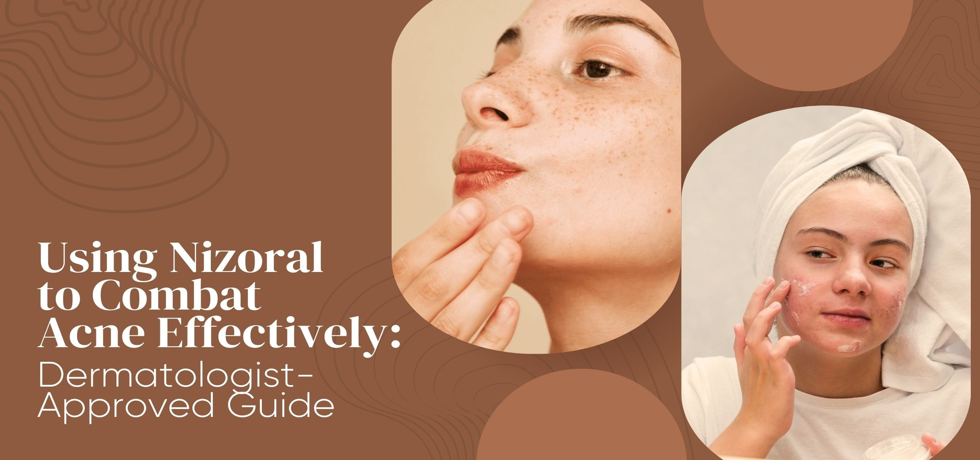
Unlocking the Power of Nizoral for Clearer Skin
Introduction to Nizoral
When we talk about achieving clearer skin, many products come to mind, but one that has gained attention for its promising results is Nizoral. Most commonly known for its antifungal properties, Nizoral contains ketoconazole, which is not only effective in treating various fungal infections but has also emerged as a potential solution for certain skin conditions, including fungal acne. Let’s discover how to unlock the power of Nizoral for clearer skin, enhancing our skincare routines.
Understanding Fungal Acne
Fungal acne, or pityrosporum folliculitis, is often mistaken for traditional acne. It’s caused by an overgrowth of Malassezia yeast on the skin, resulting in pesky bumps and irritation. Instead of bacteria, these breakouts arise from an imbalance in the skins natural flora. Understanding this condition is crucial, as it paves the way for effective treatments, and this is where Nizoral steps in with its powerful antifungal properties.
How Nizoral Works
Nizoral functions by targeting and eradicating the Malassezia yeast, addressing the root cause of fungal acne. The active ingredient, ketoconazole, hinders fungal growth, promoting clearer skin. With its additional anti-inflammatory effects, Nizoral not only helps in reducing inflammation associated with breakouts but also aids in improving overall skin health. For those struggling with persistent acne that does not respond to conventional treatments, consulting a dermatologist regarding Nizoral could be a viable option.
Selecting the Right Nizoral Formulation
Choosing the right form of Nizoral is essential to effectively combat fungal acne. Generally available as a shampoo or cream, the 1% ketoconazole shampoo is widely prescribed. As a dual-purpose product, it can be utilized as a face mask to treat facial breakouts or as a body wash for areas prone to fungal infections. Its recommended to begin with the milder formulation, while a dermatologist might offer a stronger dose if necessary. Always look for personalized recommendations to match your skin’s needs.
Best Practices for Application
For optimal results, applying Nizoral correctly is crucial. Heres a step-by-step guide: cleanse the affected area gently, then apply a thin layer of Nizoral, leaving it on for about 5 to 10 minutes before rinsing. Monitoring how your skin responds during this treatment is vital, as adjustments may be necessary based on sensitivity or irritation levels. Regular consultation with your dermatologist will ensure your approach remains effective and safe.
The Benefits of Using Nizoral
The benefits of incorporating Nizoral into your skincare routine for clearer skin are multifaceted. Not only does it address fungal acne, but it also helps in reducing inflammation and preventing future outbreaks. Regular use can enhance your skin’s texture, leading to a smoother and healthier complexion. It’s always recommended to explore combining Nizoral with other complementary treatments for acne for a more holistic approach to skincare.
Consulting with Dermatologists
While Nizoral can offer numerous benefits, consulting a dermatologist is essential before starting any new treatment. Personalized advice ensures that you address your specific skin conditions and concerns effectively. Regular follow-ups will allow for any necessary adjustments and enhancements to your skincare routine, maximizing your chances of achieving clearer skin.
Conclusion
Unlocking the power of Nizoral for clearer skin is achievable through informed decisions and consistent application. By understanding the nature of your skin issues, selecting the appropriate products, and following best practices, you can embark on a journey to healthier skin. Remember, the key to effective skincare lies in collaboration with professionals. For any skin condition you might encounter, don’t hesitate to reach out for expert guidance.
FAQs
Can Nizoral be used for long-term treatment?
Yes, but it is best to consult a dermatologist to determine the right duration based on your skin’s response.
Is Nizoral suitable for all skin types?
While generally safe, individuals with sensitive skin should consult with a dermatologist before use.
Yes, but it is best to consult a dermatologist to determine the right duration based on your skin’s response.
Is Nizoral suitable for all skin types?
While generally safe, individuals with sensitive skin should consult with a dermatologist before use.
For professional assistance and expert advice from leading dermatologists like Dr. Hital Patel, experience the benefits of Unlocking the Power of Nizoral for Clearer Skin with Hair & Skin Specialist Dr. Hital Patel at The Skin Artistry. Our clinics in PDPU Gandhinagar, Vastrapur Ahmedabad, and Hyderabad (Visiting Consultant) offer top-quality care and personalized treatments. Visit us today to learn more about our services and take advantage of our special offers! For more insights, updates, or to collaborate, stay connected with The Skin Artistry.

